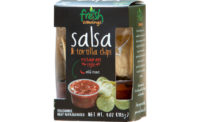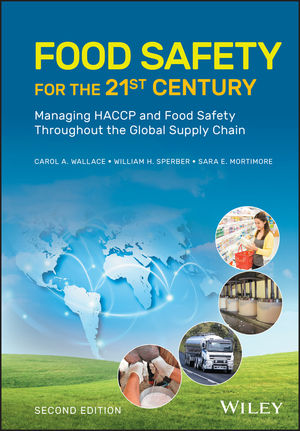While the Sept. 19 deadline of complying with the initial regulations of the Food Safety and Modernization Act (FSMA) has passed, it’s not time for frozen food manufacturers or grocery retailers to relax.
Regulatory requirements change, as do agency priorities for enforcing those requirements. That’s why it’s a good idea to build frequent checks and re-checks into safety procedures and annual reviews, according to Joanne Hawana, counsel at Mintz, Levin, Cohn, Ferris, Glovsky and Popeo, P.C., Washington, D.C.
“Just because you have existing policies and procedures and have been complying with best practices for years, don’t assume you don’t need to worry,” she says.
Some companies assume that they’ve been meeting industry best practices for so long that their procedures must be good enough for FSMA compliance. But, Hawana cautions against taking that stance.
For example, the provisions of the FSMA Final Rule on Sanitary Transportation of Human and Animal Food apply to most shippers, receivers, loaders and carriers that transport food in the United States by motor or rail vehicle. It also means that for the first time, transportation companies are subject to oversight from the Food and Drug Administration (FDA). Frozen food manufacturers and retailers that use those shippers will need to make sure their carriers are compliant too. This final rule is one in particular that very clearly highlights the broad impact of FSMA across all parts of domestic food supply chain.
“The FDA can ask for shipper records and examine them,” says Hawana. “Companies should be preparing their chain of command; that is, what they’re going to do and who they’re going to call if the FDA or another agency acting on behalf of FDA requests them. And, they should make sure their shippers are ready too, by requesting records and by making sure their shippers can respond in time.”
The upshot? You need to be able to anticipate change and collaborate quickly with your shipper when necessary. It’s a good idea to analyze changes early, open channels and begin communicating and collaborating now. It’s smart to automate and make much of the communication as regular as you can, before your shipper is asked to produce documentation or respond to an audit.
Also, include the right to audit documents in the standard contracts made with shippers, and be sure that any delegation of compliance responsibilities is fully understood by both parties.
Other changes can sometimes surprise firms and jeopardize their compliance. That’s why Hawana suggests that food manufacturers, retailers and transporter—even industry veterans—ask the following questions:
- Has a particular numerical requirement changed? Sometimes, an allowable range changes over time—such as temperature or a time interval—often as the result of new knowledge gained about what is safe and what isn’t.
- Do you qualify as a small business for all parts of FSMA? An exemption from compliance for one part of FSMA or other regulations is different for different parts of the law. What’s considered a business too small to come under a specific regulation can be different for different parts of the interlocking rules created under FSMA, she says. You need to be sure to check for specific liability for each set of rules, particularly when it comes to exemptions for small businesses.
- Has your growth recently exceeded a limit that now makes you subject to regulation? Your business changes with growth, and you could hit a limit—on the type of products, revenue totals, or the number of employees—that could bring a whole new set of targets into play for your firm.
- Have the documentation rules that apply to your business changed? FSMA has introduced many new requirements for documents. It isn’t enough to simply do the right thing with regard to FSMA; you need to be able to document your compliance, as well. In some cases, the actual underlying rule remains the same, but you can become non-compliant by not being able to properly document that you’ve met the requirement.
- Are you ready to collaborate frequently with everyone in your supply chain to make sure they don’t jeopardize your compliance? The sanitary transportation rules are just one area where you need to make sure that everyone in your supply chain can meet documentation and compliance challenges.
If FSMA has taught us anything, it’s that we can expect the regulatory landscape to look different every year, our trading partners’ situations to change over time and our business needs to constantly evolve. That is the reality that the food industry must come to terms with.
Rather than preparing for just one specific set of changes at a time, adopt checks and practices that will help you comply more efficiently and completely, regardless of the specific changes that come up next. For most companies, automating away as much as possible of the compliance task not only brings down the cost of compliance through such features as dashboards, automatically generated to-do lists, collaboration features and alerts, but also makes it less error-prone, dramatically reducing the chances that something will be overlooked.
At the end of the day, ensuring the safety and wholesomeness of every food product put into the market for U.S. consumers requires each of us to do just that.









